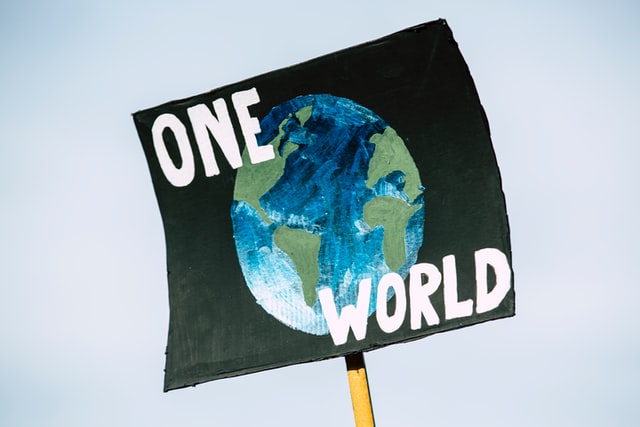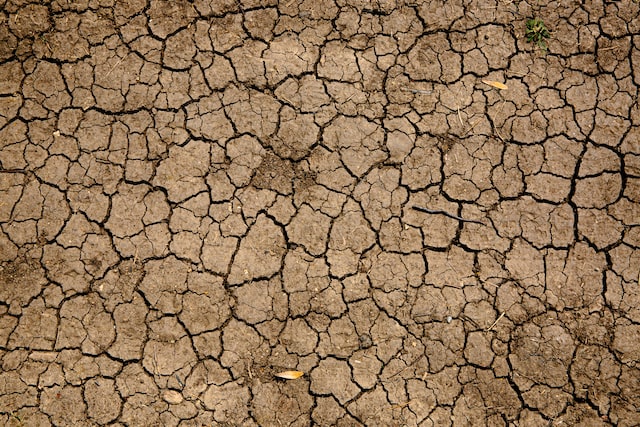Eco-Anxious to Eco-Friendly: Overcoming the Fear of Climate Change
The effects of Climate Change are disproportionate and can be magnified when paired with existing inequalities such as those of gender and socioeconomic status

Credits: Markus Spiske
August 5, 2022
Our planet today is experiencing a harrowing mess of symptoms. If a doctor were to examine Mother Earth, the diagnosis would be anything but healthy.
Climate change is a reality we must cope with. It stands to impact our future in a drastic way. The sheer magnitude of this anticipated impact can often be overwhelming for some people. The fear of the current climate crisis and its short-term and long-term impact may be termed as ‘eco-anxiety.’
The American Psychological Association defines it as, “the chronic fear of environmental cataclysm that comes from observing the seemingly irrevocable impact of climate change and the associated concern for one’s future and that of next generations.”
While climate change is a global problem, it is crucial to recognise that it does not affect everyone equally. The effects of this crisis are disproportionate and can be magnified when paired with existing inequalities such as those of gender, socioeconomic status, and other related factors. Therefore, the effects of climate change are intersectional.
Hence, the impact of eco-anxiety is also felt more deeply by select populations. Among these may be people who have been previously exposed to a natural disaster, communities that depend on natural resources for livelihood (such as agriculturists), and people who are vulnerable to mental distress as a result of genetic and/or situational circumstances.

Credits: Mike Erskine
Signs of Eco-Anxiety
Some commonly experienced signs of eco-anxiety include:
– Sleep disturbances
– Feelings of frustration towards people who don’t acknowledge climate change or refuse to engage in sustainable behaviours
– Guilt or shame about one’s individual and the human specie’s collective damage to nature
– Grief about the many extinct plant and animal species
– Post-traumatic stress from experiencing a natural disaster
– Existential dread and fatalistic thinking patterns
Climate change, as is evident, is not just a threat to the environment, but also to collective mental health. Therefore, the solutions towards combating or reducing the effect of climate change cannot be limited to those rooted in science. Solutions must also be based on an understanding of human behaviour. This is where the field of Psychology can step in the fight against climate change.
Here are some ways that can help us tackle Eco-Anxiety, while also doing our part for the climate.
1 – Take Stock of Your Personal Habits
When we engage in behaviours that go against our belief systems (for instance, carrying groceries in plastic bags while knowing that plastic is harmful for the environment), we can experience ‘cognitive dissonance.’ And this is an uncomfortable feeling that can cause immense distress.
An easy way to combat cognitive dissonance is to bring out behaviours in sync with our beliefs. Thus, adopting a sustainable lifestyle can be an actionable solution towards not just reducing our anxiety about climate change, but also doing our part for the planet!
2. Start Small
Recognise that sustainable behaviours are achievable. They don’t require you to change your lifestyle completely. You may not need to go vegan immediately. Start with smaller steps such as taking public transport or a bicycle to work, carrying your own mug to Starbucks instead of relying on their plastic cup, taking a tote bag to the grocery store, and so on.
3. Engage Your Community!
Involving other people can be a great way to realise that we’re in this together. Moreover, collective efficacy, or the belief that a group of people can affect significant change, can also increase belief in the impact of one’s own actions.
Organise community-based initiatives such as a neighbourhood trash-pickup drive, community gardening, beach cleanups, etc.
Being surrounded by people involved in the same cause can also boost emotional support to cope with some of the difficult feelings that eco-anxiety brings.
4. Don’t be Afraid of Climate Denial: Fight It!
When you encounter people who deny the reality of climate change, be mindful of your own emotions. A conflicting belief system can often give way to an ‘us versus them’ mentality, and the more divided we get, the tougher it becomes to attain our sustainability goals.
Listen to those who deny this reality, understand their concerns, and try to identify things that you may have in common with them. Once you’ve gotten past the initial discomfort of your own feelings and have established a rapport with said person, you can help them understand climate change in a way that makes sense to them!
It may not always work but realise that the cause you’re fighting for is bigger than individual differences. And if it was your own judgements holding you back, then voila, that’s something you can always change.
(Author: Samreen Chhabra works as Assistant Lecturer at Jindal Institute of Behavioural Sciences)
